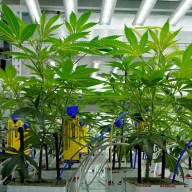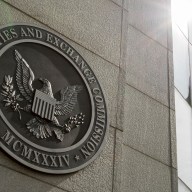By Jamie McGeever
BRASILIA (Reuters) – Brazil’s economy grew by 1.1% last year, official figures showed on Wednesday, the slowest rate in three years as a deceleration in growth in the final quarter indicated that the weak recovery from the 2015-16 recession will limp along into this year.
With growth slowing in the final three months of the year, momentum was already pointing to a soft start to 2020, well before the coronavirus outbreak that has suddenly cast a huge shadow over the world economy.
Economists at Citi on Wednesday became the latest to slash their 2020 growth and interest rate outlook, while Brazil’s real slumped to a new low of 4.53 per dollar as expectations snowballed that the central bank will soon cut rates.
The deteriorating economic outlook is likely to pile pressure on President Jair Bolsonaro and his powerful Economy Minister Paulo Guedes, as private sector economists slash their 2020 growth forecasts to below 2%.
“The most important thing to note is that this is a ‘more than 1%, but less than 2% economy’. We have had three years of economic reforms, but it isn’t showing up in the performance of the economy,” said Jose Francisco Goncalves, chief economist at Banco Fator in Sao Paulo.
“On the margin, this confirms the perception that even before coronavirus, things were complicated. The scale of the fall in business investment is worrying. It’s a very bad signal. The deceleration in consumption is another worry,” he said.
Latin America’s largest economy grew by 0.5% in the fourth quarter, statistics agency IBGE said, in line with the median forecast in a Reuters poll of economists and slightly slower than 0.6% in the preceding quarter.
Responding to the figures, Economic Policy Secretary Adolfo Sachsida told Reuters that the government will lower its 2020 growth forecast next week, but not below 2%.
He insisted that the economy is on the right path, and that pressing ahead with the government’s economic reform agenda will deliver sustainable growth over the long term.
An Economy Ministry report said there was a “substantial” recovery in the second half of last year, and that further improvement in private sector job creation, credit markets and industrial confidence will stimulate growth this year.
The main contributors to fourth-quarter growth were a 0.2% rise in industrial output and a 0.6% increase in services. Net trade was also positive, with exports rising 2.6% and imports falling 3.2%, while government spending rose 0.4%.
The biggest drags on growth were a 3.3% fall in business investment – the biggest drop in three years – and a 0.4% decline in agribusiness activity, IBGE said. Private consumption growth slowed to 0.5% from 0.7% the quarter before.
The 1.1% growth in 2019 was lower than the 1.3% registered in both 2017 and 2018. With the expected damage from the coronavirus outbreak now compounding the weak “carry over” effect from last year, the 2020 outlook has darkened.
On Tuesday, Brazil’s central bank said it was monitoring the economic and financial impact of coronavirus, which analysts interpreted as a sign it is preparing to cut interest rates.
Citi’s economists now expect the benchmark Selic rate will be cut to 3.50% by May from 4.25% currently, starting with a 50-basis point move at the March 17-18 policy meeting.
“Risks are to the downside (that is, cut more not less) depending on how global financial conditions evolve in the coming days,” they said.
(Reporting by Jamie McGeever and Marcela Ayres; Editing by Bernadette Baum, Nick Zieminski and David Gregorio)















